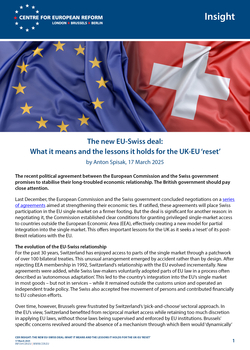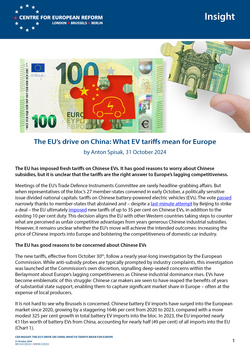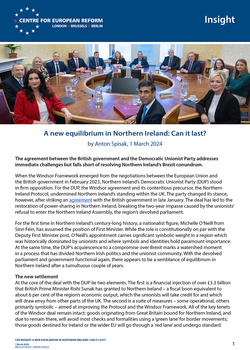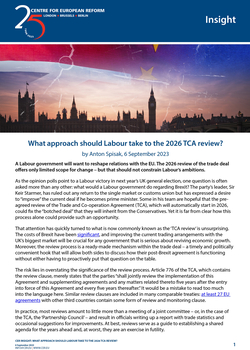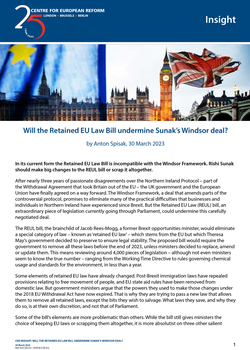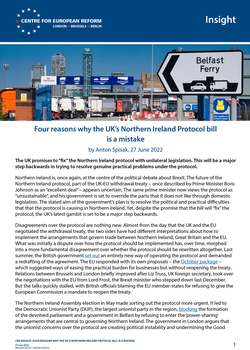Anton Spisak
Anton Spisak

Associate fellow
Areas of expertise
Britain and the EU, Northern Ireland, international economics, trade, R&D and innovation, Central and Eastern Europe.
Twitter
Bluesky
The new EU-Swiss deal: What it means and the lessons it holds for the UK-EU 'reset'
17 March 2025
The recent political agreement between the European Commission and the Swiss government promises to stabilise their long-troubled economic relationship. The British government should pay close attention.
The EU's drive on China: What EV tariffs mean for Europe
31 October 2024
The EU has imposed fresh tariffs on Chinese EVs. It has good reason to worry about Chinese subsidies, but it is unclear that the tariffs are the right answer to Europe’s lagging competitiveness.
A new equilibrium in Northern Ireland: Can it last?
01 March 2024
The agreement between the British government and the Democratic Unionist Party addresses immediate challenges but falls short of resolving Northern Ireland’s Brexit conundrum.
What approach should Labour take to the 2026 TCA review?
06 September 2023
A Labour government will want to reshape relations with the EU. The 2026 review of the trade deal offers only limited scope for change – but that should not constrain Labour’s ambitions.
Will the Retained EU Law Bill undermine Sunak's Windsor deal?
30 March 2023
In its current form the Retained EU Law Bill is incompatible with the Windsor Framework. Rishi Sunak should make big changes to the REUL bill or scrap it altogether.
Four reasons why the UK’s Northern Ireland Protocol bill is a mistake
27 June 2022
The UK promises to “fix” the Northern Ireland protocol with unilateral legislation. This will be a major step backwards in trying to resolve genuine practical problems under the protocol.

